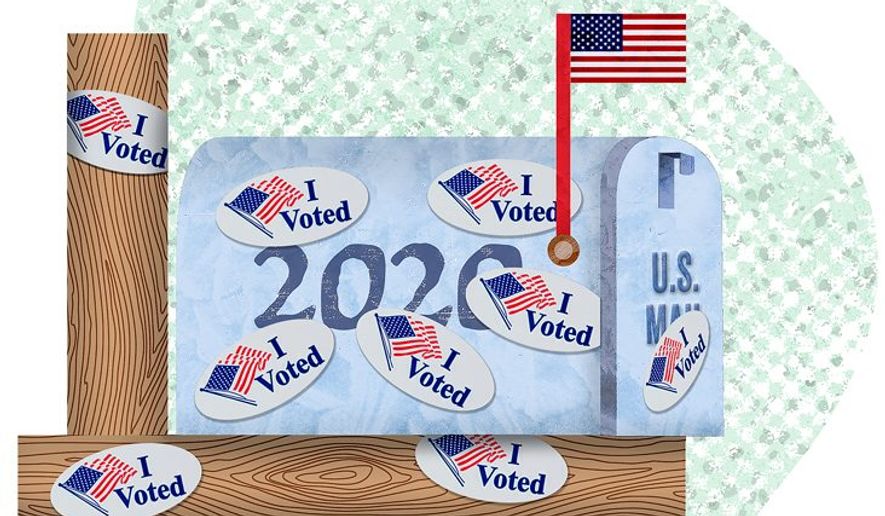OPINION:
U.S. Attorney General Bill Barr appeared before the House Judiciary Committee to testify last week on the multiplicity of issues filling the headlines. While there was much brought up that deserves more discussion, today I am most troubled by the committee’s inquiries around mail voting. Two distinct systems of voting were conflated by at least two committee members, but contrary to the line of questioning, the system of absentee voting and mail-in voting are in no way equivalent.
Since the inquiring members persistently “reclaimed their time” without giving Mr. Barr the opportunity to draw this distinction, allow me to do so. The system that Mr. Barr readily conceded he has used what is called absentee voting. Due to his absence from his polling place on Election Day, he requested an absentee ballot via a ballot request form on Virginia’s Department of Elections, which required several verifications of his identity: his full name, birth year, the last four digits of his Social Security number, the address where he is registered to vote and his signature.
Only after verifying that these details matched his original registration did the office send him his ballot. This system of absentee voting is broadly supported across the country, and with good reason: It gives an option to voters who may not be able to make it to the polls, and it is embedded with important ballot safeguards that protect the vote.
Some states, including Mr. Barr’s home state of Virginia, offer no-excuse absentee voting, whereby voters can request a ballot for any reason, including personal preference. Here is the key: No-excuse absentee voting still requires a ballot request form. It still requires clerks at the Department of Elections to verify the request against the voter’s registration form, providing additional safeguards toward the fundamental “one voter–one vote” philosophy that is the bedrock of American democracy.
Mail-in voting is entirely distinct from absentee voting, lacking necessary safeguards for voted ballots. Under mail-in voting, a blank ballot is mailed to every registration on the voter rolls, without the verification process of a ballot request form. It is enacting this system that has been made a national priority in the House of Representatives’ HEROES Act, which would require every voter registration in America to be mailed a blank ballot. Anyone — including campaign operatives — could collect these voted ballots from Americans’ homes and turn them in to the Elections Office.
This system of mass mailing blank ballots to every registration was trialed in several states during the primary season this year, and in virtually every case, it was rife with trouble.
In Nevada, following a wrongheaded lawsuit, blank ballots were not only sent to every active voter registration, but to inactive ones as well. The lawsuit demonstrates a fundamental ignorance about what an inactive registration signifies in Nevada, where registrations are moved to inactive only when mail has been received back as undeliverable. Thus, these undeliverable ballots flooded the streets across the state. Blank, votable ballots were seen littered around trash cans and stuffed behind bulletin boards in apartment complexes. How’s that for instilling confidence in our election results?
The results in New Jersey were even more discomforting. Much has been said of the rampant cheating in Paterson, where multiple campaigns have been accused of stealing blank ballots out of mailboxes and turning in stacks of illegitimate votes.
Not enough has been said about what happened in Palisades Park, in North Jersey. There, municipal candidates set up shop in a nursing home lobby, asking residents to come downstairs with their blank ballots so campaigners could “help” residents fill them out. One resident reported that the operative filled out her ballot for her, only asking for her signature. Surely this is not a system we want to duplicate in every assisted living home in America.
When committee members asked Mr. Barr if he had ever used “mail-in voting,” he could have reasonably asked if they were referring to the system that they had supported in the HEROES Act — and to that, he could have answered in the negative. The conflation of absentee voting and mail-in voting is at best disingenuous, and at worst threatens the public’s confidence in our election results. It is incumbent upon us to make it a priority, both in our own states and in Congress, to safeguard our elections with the verifications that have always been, and should always, embedded in our democratic system.
• Garry Smith is a Republican member of the South Carolina House of Representatives.




Please read our comment policy before commenting.